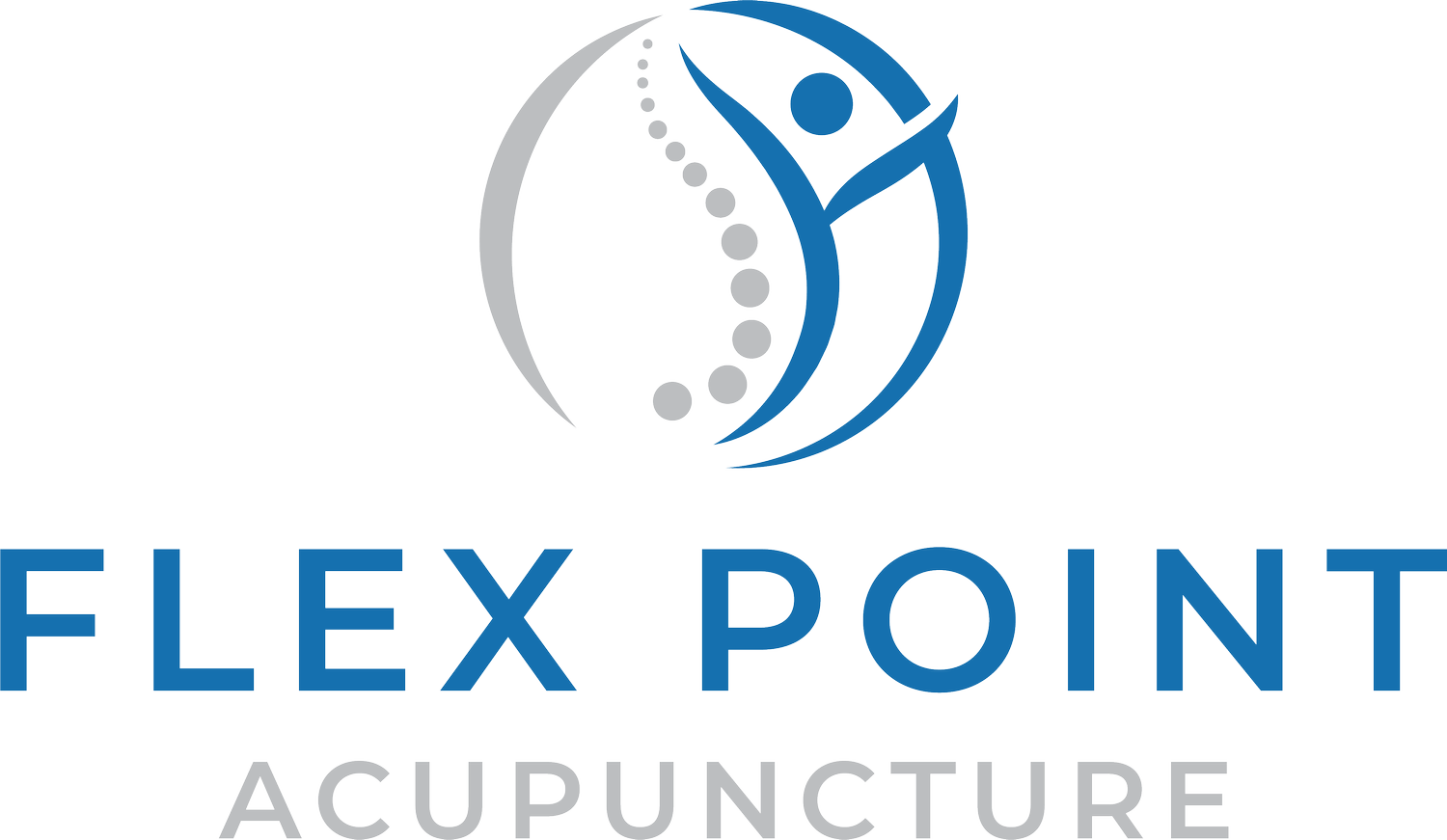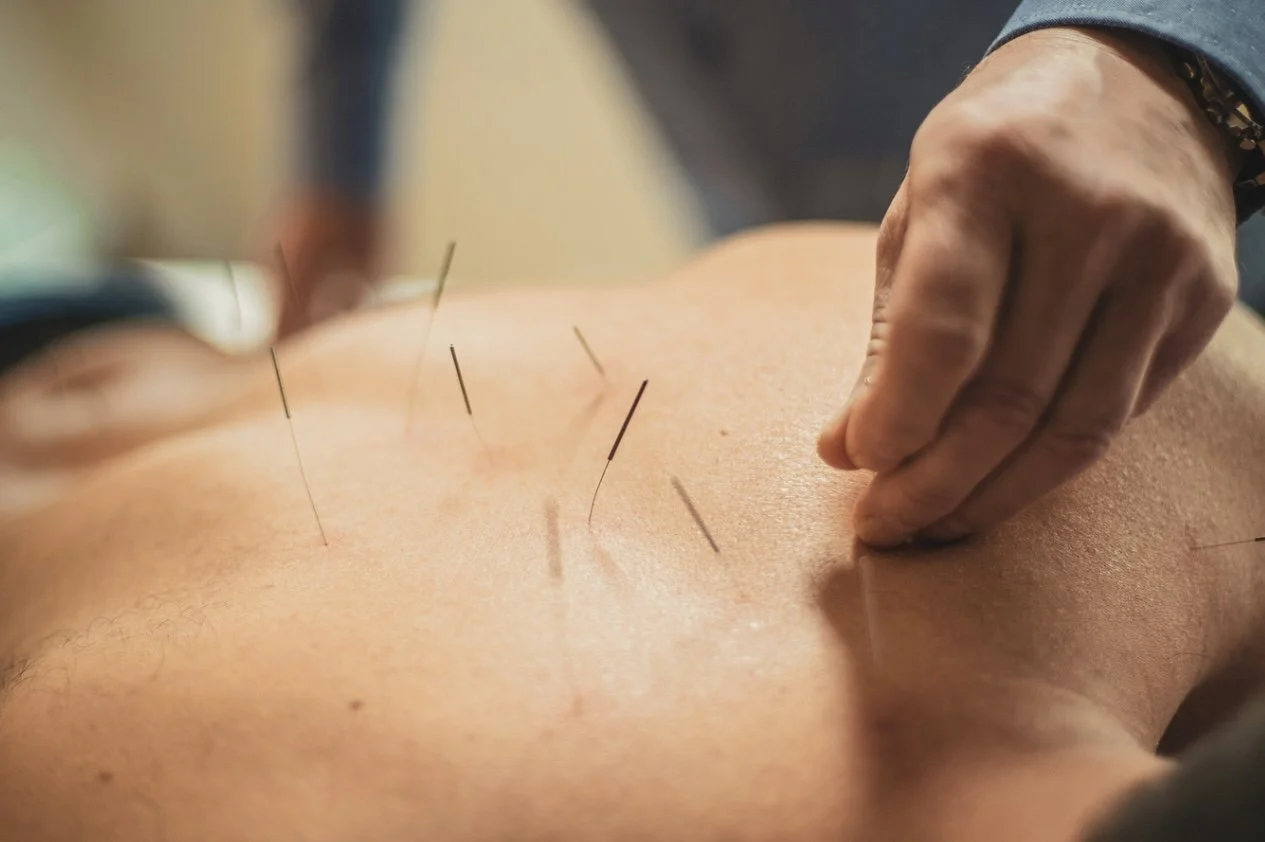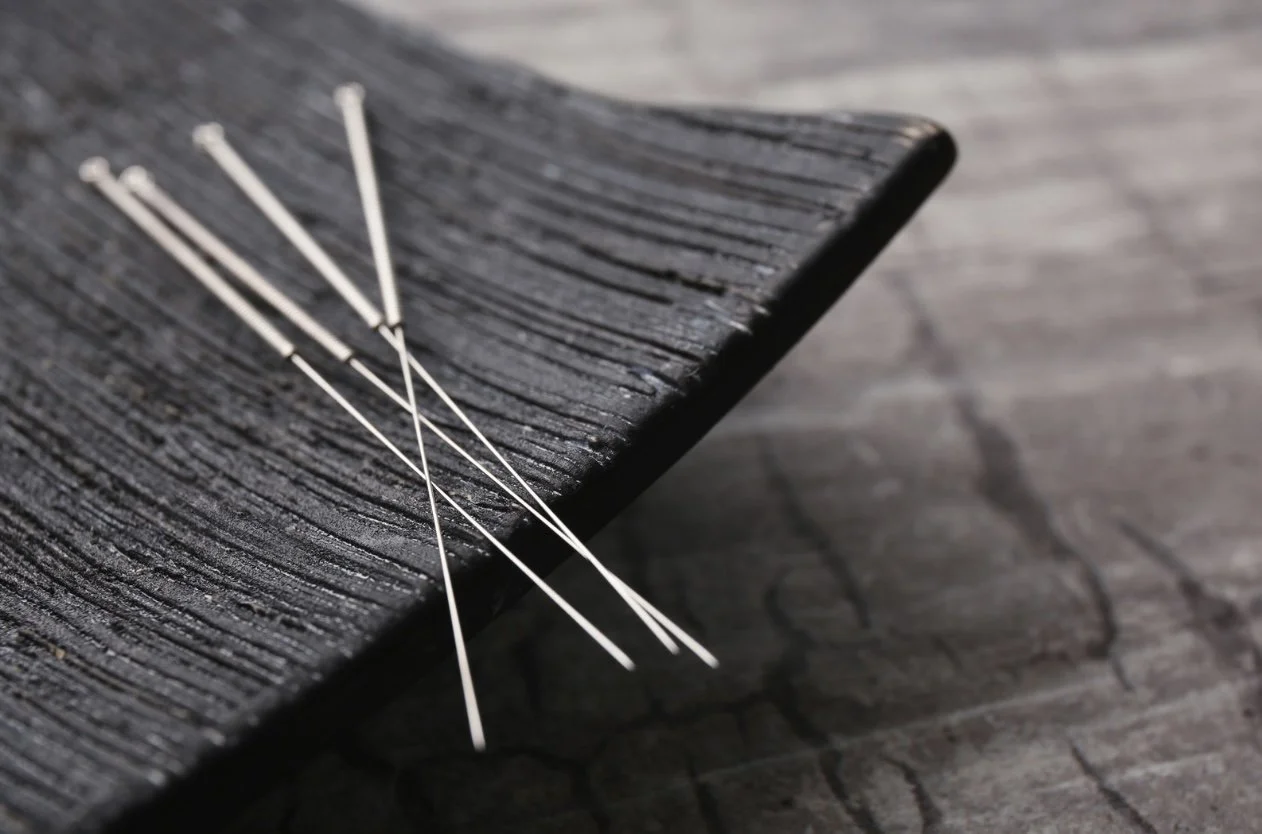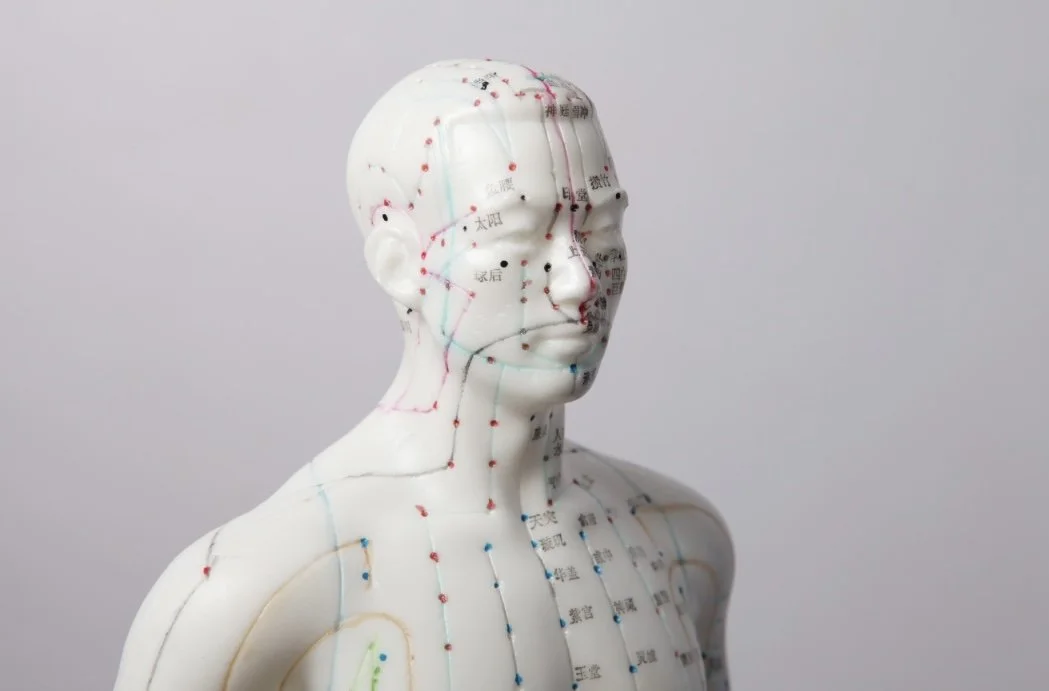Acupuncture 101
TLDR (Too Long; Didn't Read):
Acupuncture is an ancient Chinese healing practice that involves inserting thin needles into specific body points. By stimulating the body's natural healing processes, releasing pain-relieving chemicals, and balancing the nervous system, acupuncture provides potential benefits for pain management, immune support, mental health, and more.
Ancient Practice, Modern Benefits
Acupuncture, an ancient healing practice rooted in traditional Chinese medicine, has gained significant attention in the Western world over the past few decades. This blog post will explore what acupuncture is, how it's believed to work, and the potential benefits it offers to those seeking alternative or complementary treatments for various health conditions.
What is Acupuncture?
Acupuncture is a therapeutic technique that involves inserting thin, sterile needles into specific points on the body. These points, known as acupoints, are believed to be connected through pathways or meridians that conduct qi, or life energy, throughout the body. The practice dates back over 2,000 years and is an integral part of traditional Chinese medicine [1].
How Does Acupuncture Work?
While the traditional Chinese explanation involves the flow of qi, modern scientific research has proposed several mechanisms through which acupuncture may exert its effects:
1. Neurohormonal Pathway:
Acupuncture may stimulate the release of endorphins, the body's natural pain-relieving chemicals. A study published in the Journal of Endocrinology suggested that acupuncture activates the hypothalamus-pituitary-adrenal (HPA) axis, leading to the production of beta-endorphins [2]. This activation has several important implications:
Pain Relief: Beta-endorphins are natural opioids that bind to the same receptors as opioid drugs, providing pain relief and a sense of well-being. This helps explain acupuncture's effectiveness in managing various types of pain.
Stress Reduction: By modulating the HPA axis, a key component of the body's stress response system, acupuncture may help regulate stress responses, potentially reducing feelings of anxiety and improving overall stress management.
Mood Regulation: The mood-elevating effects of beta-endorphins could partly explain why acupuncture has shown promise in treating depression and anxiety disorders.
Immune System Modulation: The HPA axis plays a role in regulating immune function. By influencing this system, acupuncture might indirectly affect immune responses, which could have implications for treating inflammatory conditions or autoimmune disorders.
Hormone Regulation: The HPA axis is crucial in hormonal regulation. Its activation could influence various hormonal processes in the body, potentially affecting conditions related to hormonal imbalances.
Potential for Treating Addiction: Given that beta-endorphins act on the same receptors as opioids, this mechanism is thought to contribute to acupuncture's role in addiction treatment, particularly for opioid dependence.
Sleep Improvement: The HPA axis is involved in regulating circadian rhythms. Modulation of this system might help explain some reports of improved sleep quality with acupuncture treatment.
2. Gate Control Theory:
This theory, first proposed by Melzack and Wall in 1965, offers an explanation for how acupuncture might alleviate pain [3]. The Gate Control Theory posits that:
Pain signals are not automatically transmitted from the peripheral nerves to the brain.
There's a "gate" mechanism in the spinal cord that can either allow pain signals to pass through to the brain or block them.
This gate can be influenced by various factors, including other nerve signals and psychological factors.
In the context of acupuncture:
The insertion of acupuncture needles may stimulate specific nerve fibers (A-beta fibers) that transmit non-painful touch sensations.
These touch signals can "close the gate" to pain signals, effectively reducing or blocking the perception of pain.
This mechanism might explain why acupuncture can provide immediate pain relief in some cases.
The theory also helps explain why rubbing a painful area can temporarily reduce pain sensation.
It's important to note that while the Gate Control Theory provides a plausible explanation for some of acupuncture's pain-relieving effects, it doesn't account for all of acupuncture's reported benefits. The theory is particularly relevant for understanding acute pain relief but may not fully explain long-term changes or effects on other bodily systems.
2. Micro-injury and Healing:
The insertion of acupuncture needles may create tiny, localized injuries that stimulate the body's healing response [4]. This mechanism suggests that:
Each needle insertion creates a micro-trauma in the tissue.
This micro-trauma triggers a local inflammatory response, which is a normal part of the healing process.
The inflammatory response increases blood flow to the area, bringing oxygen and nutrients.
This increased circulation may help to:
Reduce local swelling and pain
Promote tissue repair and regeneration
Enhance the delivery of immune cells to the area
The micro-injury may also stimulate the production of certain cellular factors that promote healing, such as fibroblast growth factors.
Some researchers propose that this localized healing response may have more widespread effects throughout the body, potentially explaining some of acupuncture's systemic benefits.
4. Autonomic Nervous System Regulation:
Acupuncture may help balance the sympathetic ("fight or flight") and parasympathetic ("rest and digest") branches of the autonomic nervous system [5]. This regulation could explain many of acupuncture's wide-ranging effects:
Stress Reduction: By potentially reducing sympathetic activity and increasing parasympathetic activity, acupuncture may help lower stress levels and promote relaxation.
Pain Modulation: The autonomic nervous system plays a role in pain perception. Balancing this system may contribute to acupuncture's pain-relieving effects.
Digestive Function: The parasympathetic nervous system stimulates digestive processes. Acupuncture's effect on this system may explain its reported benefits for various digestive issues.
Cardiovascular Regulation: The autonomic nervous system regulates heart rate and blood pressure. Acupuncture's influence on this system may contribute to its potential cardiovascular benefits.
Sleep Improvement: By promoting parasympathetic activity, acupuncture may help improve sleep quality and duration.
Immune Function: The autonomic nervous system interacts with the immune system. Acupuncture's regulatory effects may indirectly influence immune function.
Potential Benefits of Acupuncture
1. Pain Management:
Acupuncture has shown significant potential in managing various types of pain [6].
Chronic Pain: A meta-analysis published in the Journal of Pain found that acupuncture was effective for chronic pain conditions, including back and neck pain, osteoarthritis, and chronic headaches.
Fibromyalgia: Acupuncture helps alleviate widespread pain and fatigue associated with fibromyalgia by modulating pain pathways and reducing inflammation
Post-operative Pain: Acupuncture has been used to reduce pain and the need for pain medication after surgeries.
2. Migraine and Headache Prevention:
Acupuncture is recognized as an effective treatment for both migraine prevention and the reduction of tension headaches:
Migraine Prevention: According to the Cochrane Database of Systematic Reviews, acupuncture can be as effective as prophylactic drugs, with fewer adverse effects. It is believed to regulate serotonin levels and improve blood flow, reducing the frequency and severity of migraines.
Tension Headaches: By relieving muscle tension, especially in the neck and upper back, acupuncture helps prevent headaches caused by stress and poor posture.
3. Nausea and Vomiting
Acupuncture and acupressure are particularly effective at reducing nausea and vomiting associated with a variety of causes:
Chemotherapy-Induced Nausea and Vomiting: By stimulating certain points (like PC6 on the wrist), acupuncture can reduce nausea experienced during chemotherapy, offering a drug-free alternative to antiemetic medications.
Postoperative Nausea: Acupuncture helps reduce nausea and vomiting after surgery, improving recovery time.
Pregnancy-Related Nausea (Morning Sickness): For pregnant women, acupuncture provides a safe, non-pharmaceutical option to relieve nausea, especially during the first trimester.
4. Mental Health
Acupuncture may be used as a complementary therapy to support mental health conditions by balancing the nervous system and regulating neurotransmitter levels [9]:
Depression: Some studies suggest that acupuncture can help alleviate symptoms of depression, especially when combined with conventional treatments like medication or psychotherapy. It may improve mood by stimulating the release of serotonin and dopamine.
Anxiety: Acupuncture helps calm the body’s stress response, potentially reducing symptoms of generalized anxiety disorder (GAD) and panic disorders. It can promote relaxation by regulating the autonomic nervous system.
Insomnia: Acupuncture can improve sleep quality by reducing stress, regulating sleep hormones like melatonin, and addressing the underlying causes of insomnia.
5. Women’s Health
Acupuncture has been studied for a wide range of women's health issues:
Menstrual Cramps: Acupuncture may help reduce pain and inflammation associated with menstrual cramps (dysmenorrhea) by increasing blood flow and reducing muscle tension in the uterus.
Menopausal Symptoms: It’s shown to be effective in alleviating symptoms of menopause, such as hot flashes and night sweats, by balancing hormone levels.
Fertility and IVF Support: Acupuncture is sometimes used to enhance fertility by improving blood flow to the uterus and ovaries, regulating the menstrual cycle, and reducing stress, all of which can enhance the chances of conception, including in conjunction with IVF treatments.
6. Digestive Issues
Acupuncture helps regulate the digestive system and can provide relief from a variety of gastrointestinal issues:
Irritable Bowel Syndrome (IBS): By reducing stress and improving gut motility, acupuncture can alleviate symptoms like bloating, cramping, diarrhea, and constipation.
Acid Reflux (GERD): Acupuncture can regulate the production of stomach acid and improve esophageal function, reducing the frequency of acid reflux episodes and helping with heartburn.
7. Respiratory Conditions
Acupuncture supports respiratory health by enhancing lung function and reducing inflammation:
Asthma: Acupuncture helps reduce airway inflammation and bronchial spasms, making it easier to breathe and improving lung function.
Chronic Obstructive Pulmonary Disease (COPD): Acupuncture can enhance respiratory capacity and reduce symptoms like coughing and breathlessness by improving oxygen exchange and reducing inflammation in the lungs.
Allergic Rhinitis: It can alleviate symptoms of allergic rhinitis (seasonal allergies) like sneezing, itching, and congestion by modulating the immune response and reducing the body’s histamine reaction.
8. Stroke Recovery and Rehabilitation
Acupuncture is commonly used in stroke rehabilitation to promote recovery by stimulating the nervous system:
Motor Function Recovery: Acupuncture stimulates nerve regeneration and helps restore motor skills in affected limbs.
Spasticity Reduction: It can help relax stiff muscles and improve mobility by targeting the nervous system.
Speech and Cognitive Recovery: Acupuncture aids in neuroplasticity, helping to restore speech and cognitive abilities after a stroke.
9. Cancer-related Symptoms
In cancer care, acupuncture is often used as a complementary therapy to help with the side effects of cancer treatment:
Cancer-Related Fatigue: Acupuncture can improve energy levels and combat fatigue, a common side effect of chemotherapy and radiation treatments.
Cancer-Related Pain: It can help reduce pain associated with tumors or treatments, offering relief without the side effects of pain medications.
Chemotherapy-Induced Peripheral Neuropathy: Acupuncture has been shown to reduce symptoms of nerve damage, such as pain, tingling, and numbness, which often result from chemotherapy.
Conclusion
Acupuncture represents a fascinating bridge between ancient wisdom and modern medicine. As research continues to uncover its mechanisms and potential applications, it remains an intriguing option for those seeking complementary approaches to health and wellness.
It's important to note that individual responses to acupuncture can vary, and what works for one person may not work for another.
As with any medical treatment, it's crucial to consult with a healthcare provider before starting acupuncture, especially if you have any pre-existing health conditions or are taking medications. Acupuncture should be viewed as a complementary therapy to be used alongside, not in place of, conventional medical treatments when appropriate.
References
1. Zhuang, Y., et al. (2013). "History and Current Situation of Acupuncture Research" in Journal of Integrative Medicine.
2. Eshkevari, L., et al. (2013). "Acupuncture Blocks Cold Stress-Induced Increases in the Hypothalamus-Pituitary-Adrenal Axis in the Rat" in Journal of Endocrinology.
3. Zhao, Z. Q. (2008). "Neural mechanism underlying acupuncture analgesia" in Progress in Neurobiology.
4. Langevin, H. M., et al. (2001). "Mechanical signaling through connective tissue: a mechanism for the therapeutic effect of acupuncture" in The FASEB Journal.
5. Li, Q. Q., et al. (2013). "Acupuncture effect and central autonomic regulation" in Evidence-Based Complementary and Alternative Medicine.
6. Vickers, A. J., et al. (2012). "Acupuncture for Chronic Pain: Individual Patient Data Meta-analysis" in Archives of Internal Medicine.
7. Linde, K., et al. (2016). "Acupuncture for the prevention of episodic migraine" in Cochrane Database of Systematic Reviews.
8. Ezzo, J., et al. (2006). "Acupuncture-point stimulation for chemotherapy-induced nausea or vomiting" in Cochrane Database of Systematic Reviews.
9. Pilkington, K., et al. (2010). "Acupuncture for anxiety and anxiety disorders – a systematic literature review" in Acupuncture in Medicine.
10. Feng, S., et al. (2015). "Acupuncture for the treatment of allergic rhinitis: a systematic review and meta-analysis" in American Journal of Rhinology & Allergy.




